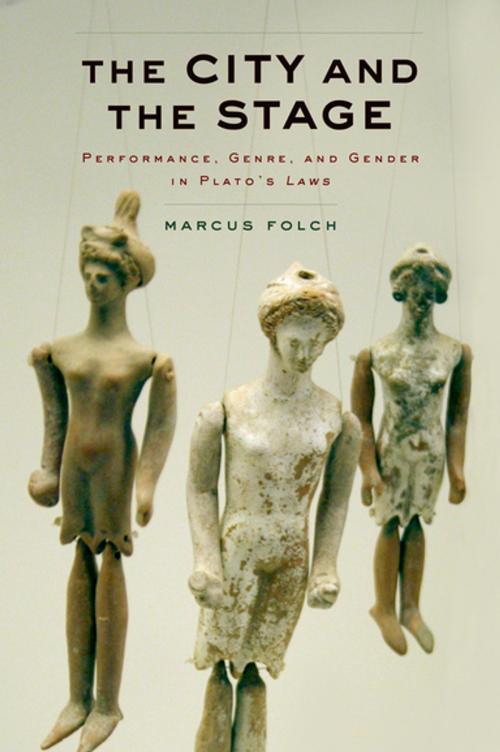The City and the Stage
Performance, Genre, and Gender in Plato's Laws
Nonfiction, Entertainment, Drama, Greek & Roman, Fiction & Literature, History, Ancient History, Greece| Author: | Marcus Folch | ISBN: | 9780190606480 |
| Publisher: | Oxford University Press | Publication: | December 1, 2015 |
| Imprint: | Oxford University Press | Language: | English |
| Author: | Marcus Folch |
| ISBN: | 9780190606480 |
| Publisher: | Oxford University Press |
| Publication: | December 1, 2015 |
| Imprint: | Oxford University Press |
| Language: | English |
What role did poetry, music, song, and dance play in the social and political life of the ancient Greek city? How did philosophy respond to, position itself against, and articulate its own ambitions in relation to the poetic tradition? How did ancient philosophers theorize and envision alternatives to fourth-century Athenian democracy? The City and the Stage poses such questions in a study of the Laws, Plato's last, longest, and unfinished philosophical dialogue. Reading the Laws in its literary, historical, and philosophical contexts, this book offers a new interpretation of Plato's final dialogue with the Greek poetic tradition and an exploration of the dialectic between philosophy and mimetic art. Although Plato is often thought hostile to poetry and famously banishes mimetic art from the ideal city of the Republic, The City and the Stage shows that in his final work Plato made a striking about-face, proposing to rehabilitate Athenian performance culture and envisaging a city, Magnesia, in which poetry, music, song, and dance are instrumental in the cultivation of philosophical virtues. Plato's views of the performative properties of music, dance, and poetic language, and the psychological underpinnings of aesthetic experience receive systematic treatment in this book for the first time. The social role of literary criticism, the power of genres to influence a society and lead to specific kinds of constitutions, performance as a mechanism of gender construction, and the position of women in ancient Greek performance culture are central themes throughout this study. A wide-ranging examination of ancient Greek philosophy and fourth-century intellectual culture, The City and the Stage will be of significance to anyone interested in ancient Greek literature, performance, and Platonic philosophy in its historical contexts.
What role did poetry, music, song, and dance play in the social and political life of the ancient Greek city? How did philosophy respond to, position itself against, and articulate its own ambitions in relation to the poetic tradition? How did ancient philosophers theorize and envision alternatives to fourth-century Athenian democracy? The City and the Stage poses such questions in a study of the Laws, Plato's last, longest, and unfinished philosophical dialogue. Reading the Laws in its literary, historical, and philosophical contexts, this book offers a new interpretation of Plato's final dialogue with the Greek poetic tradition and an exploration of the dialectic between philosophy and mimetic art. Although Plato is often thought hostile to poetry and famously banishes mimetic art from the ideal city of the Republic, The City and the Stage shows that in his final work Plato made a striking about-face, proposing to rehabilitate Athenian performance culture and envisaging a city, Magnesia, in which poetry, music, song, and dance are instrumental in the cultivation of philosophical virtues. Plato's views of the performative properties of music, dance, and poetic language, and the psychological underpinnings of aesthetic experience receive systematic treatment in this book for the first time. The social role of literary criticism, the power of genres to influence a society and lead to specific kinds of constitutions, performance as a mechanism of gender construction, and the position of women in ancient Greek performance culture are central themes throughout this study. A wide-ranging examination of ancient Greek philosophy and fourth-century intellectual culture, The City and the Stage will be of significance to anyone interested in ancient Greek literature, performance, and Platonic philosophy in its historical contexts.















